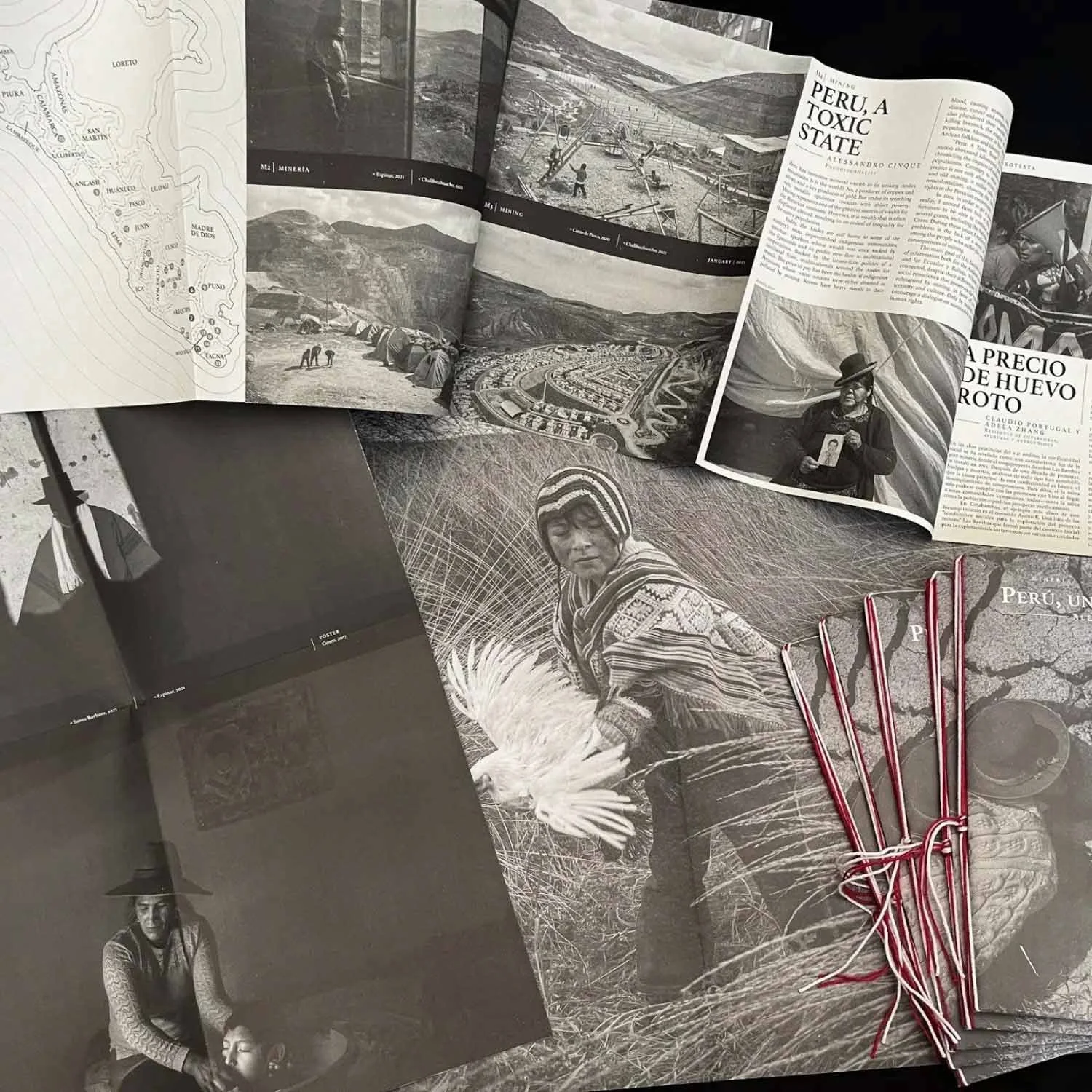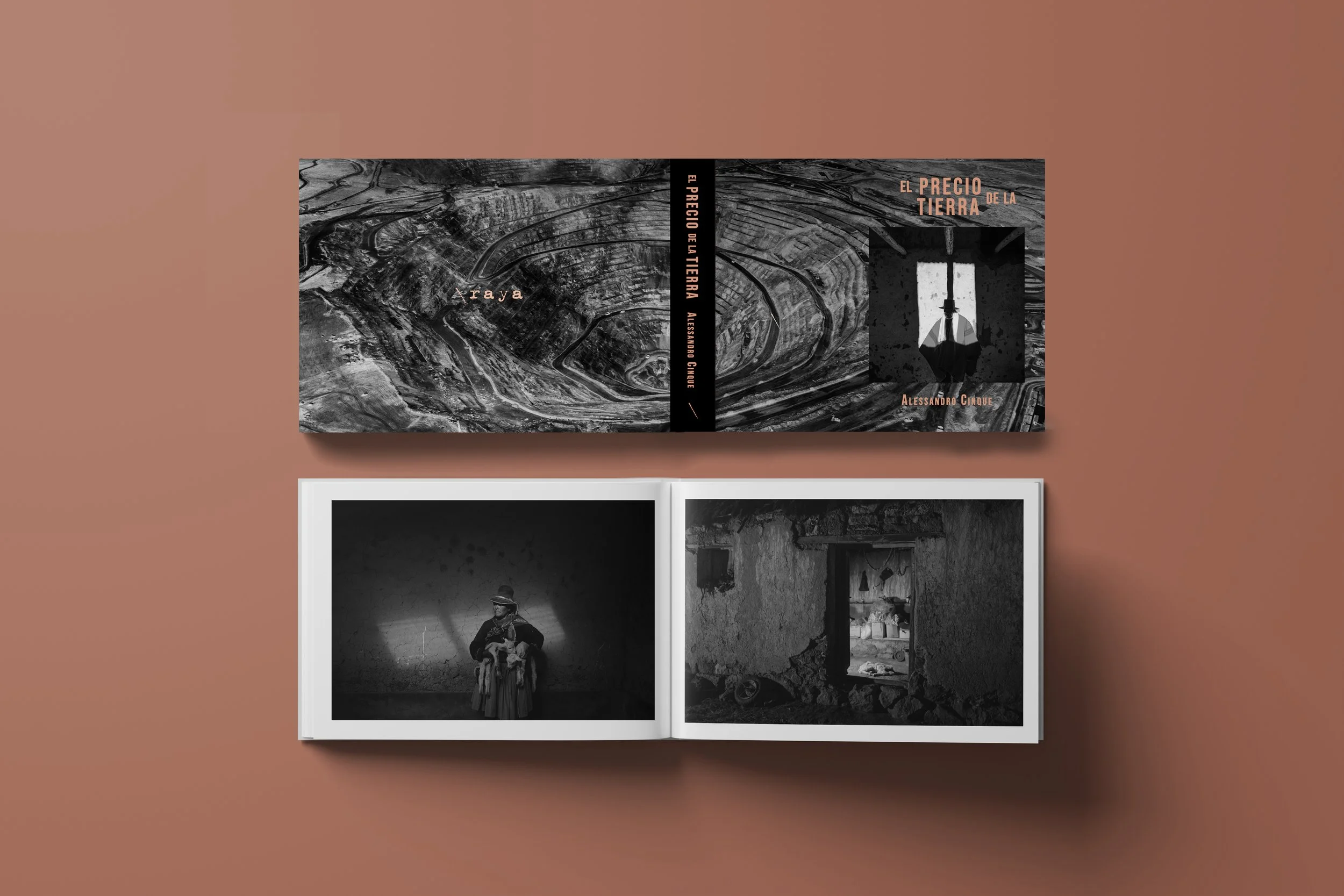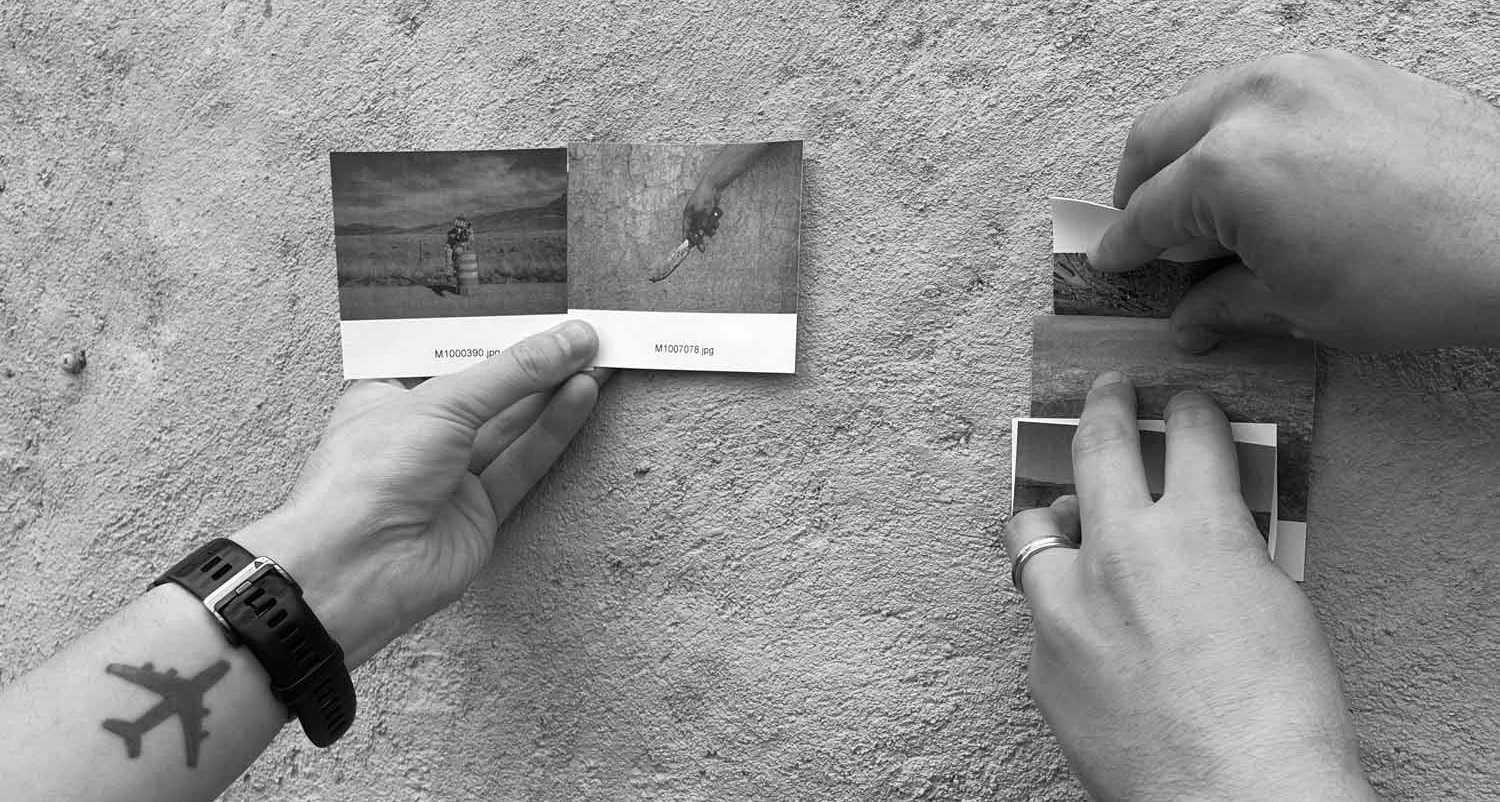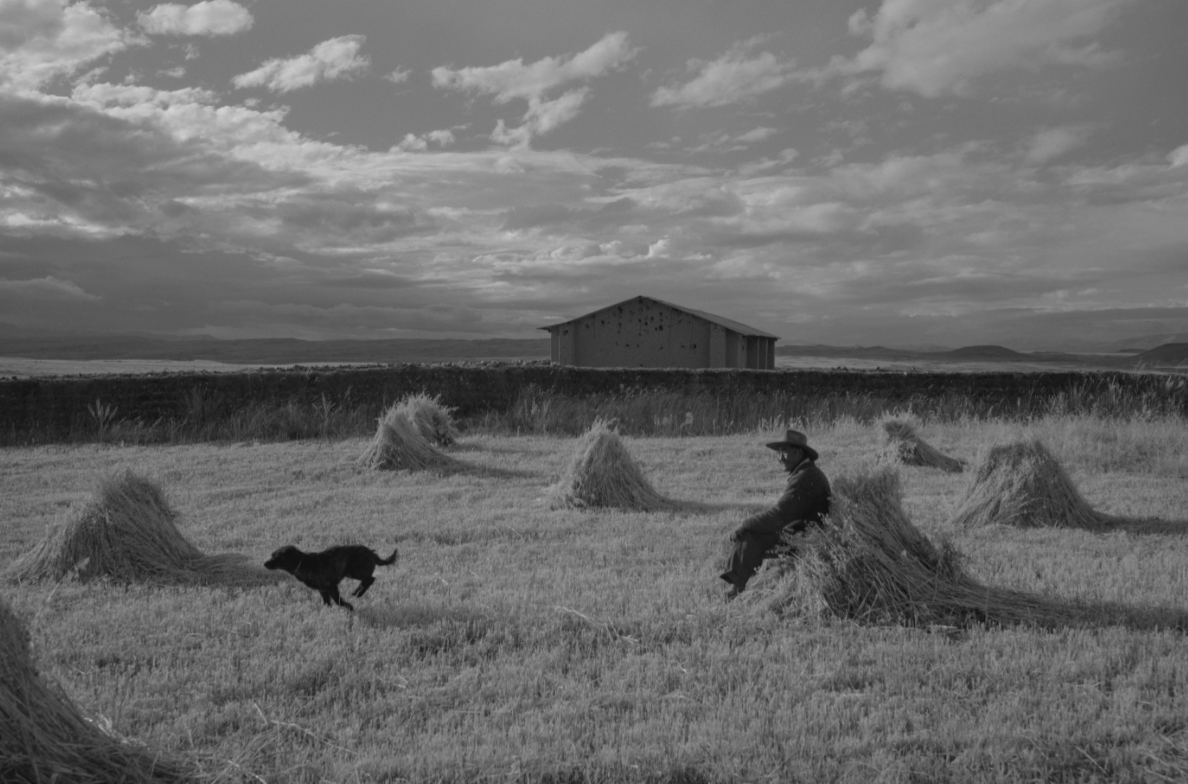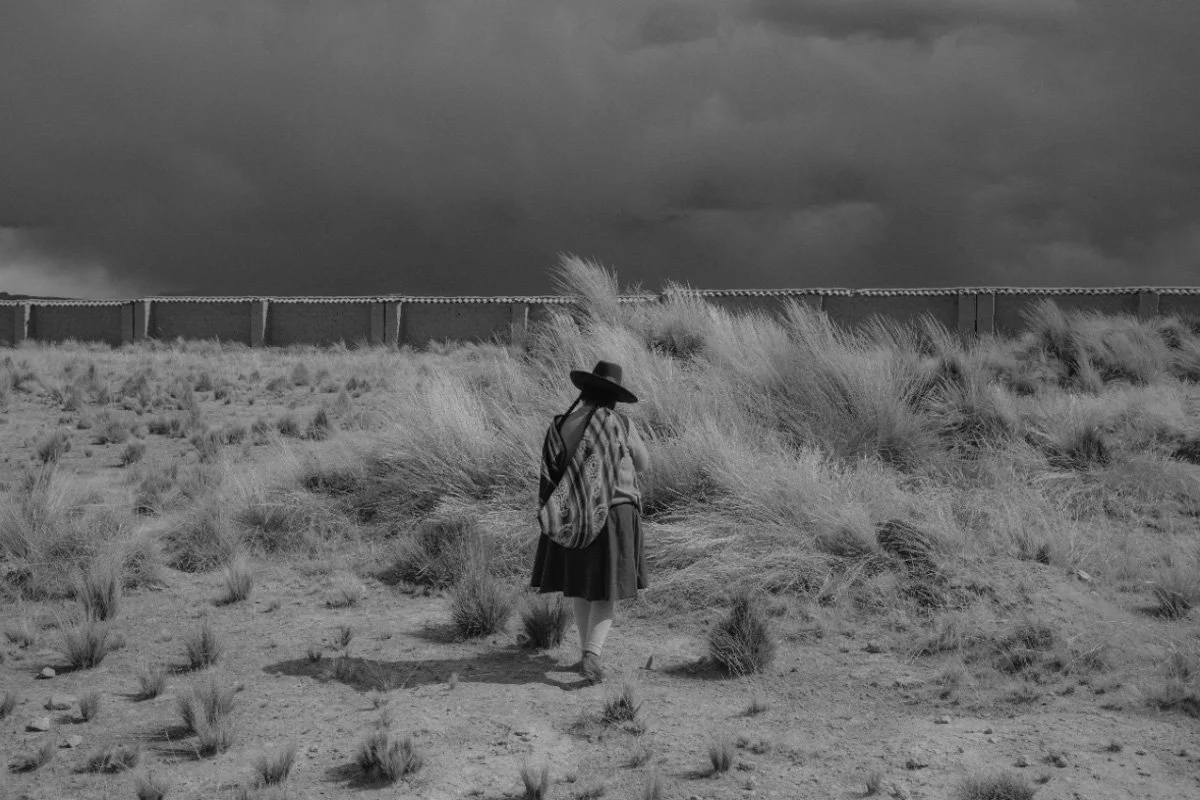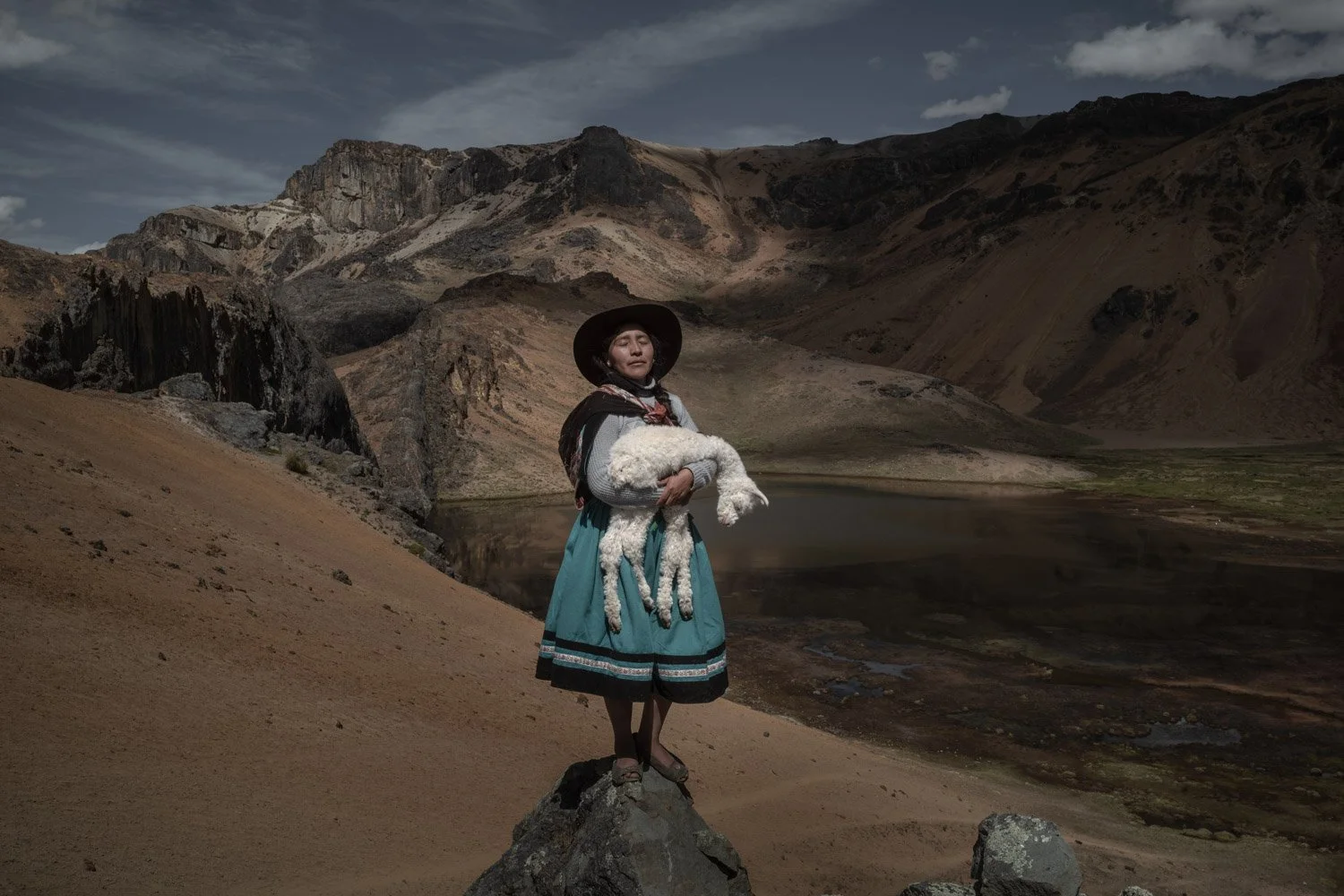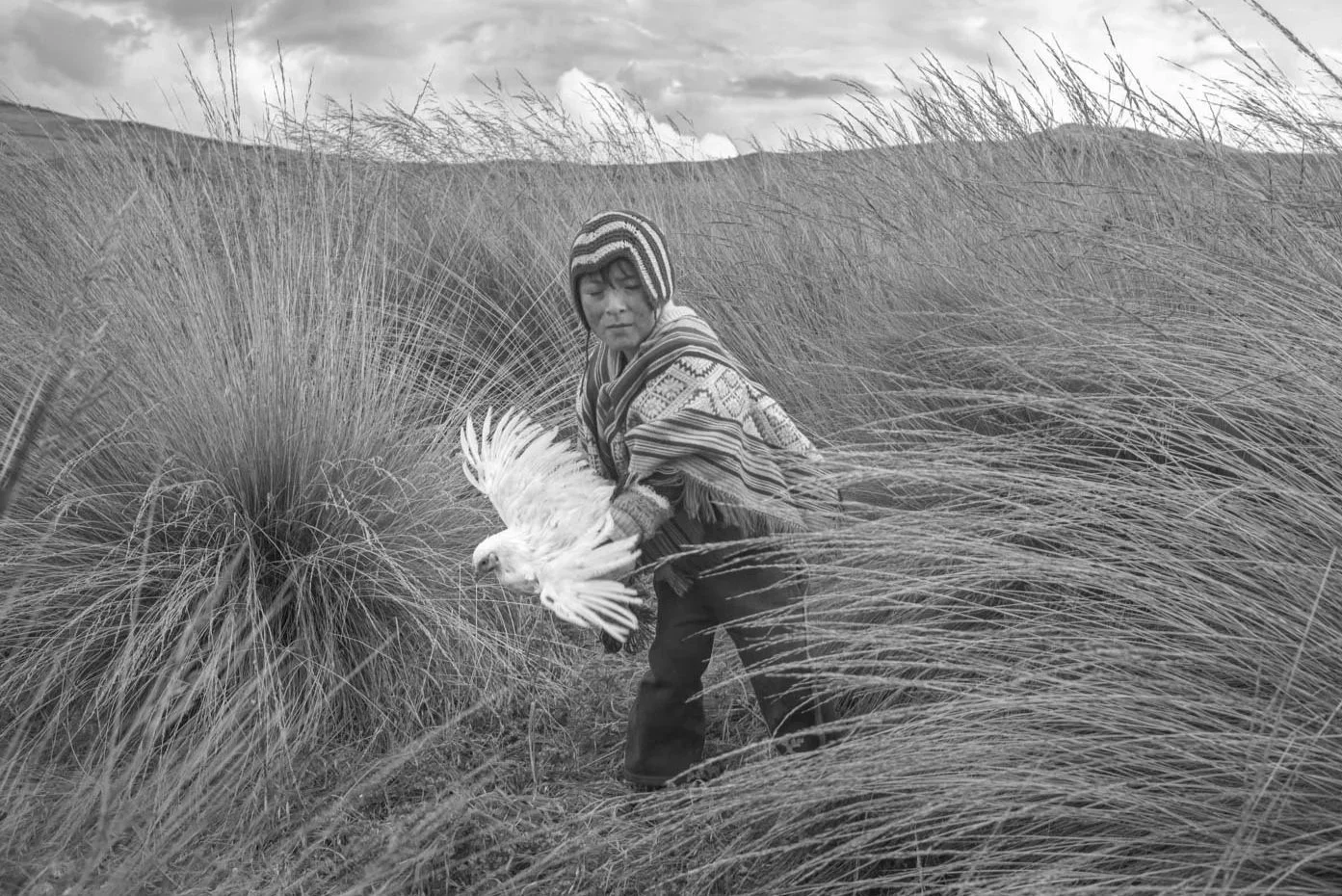El Precio de la Tierra
Photography
2017 - Ongoing
“El Precio de la Tierra” is a 9-year journey through 5 South American countries chronicling the coexistence between large-scale mining and indigenous communities in Andean territories.
South America has a vast mineral wealth. Mining accounts for a significant portion of the continent’s incoming foreign investment. But it is also accompanied by a high risk of environmental degradation and adverse impacts on local communities, leading to socio-environmental conflicts.
This project started in Peru, the world’s No. 2 producer of copper and silver. Mining is more than twice as important as tourism to the Peruvian economy. But for the Andean communities, the arrival of mining is seen as an imposition that transforms their lives and territories and affects their health. For locals, mining plunders their wealth and water sources, creating dead fields and killing livestock, the engine of their economy.
Similar tensions surround the mines in the Andes of Ecuador, Argentina, Chile and Bolivia.
A few kilometers away from Peru, lie the two mining projects with which Ecuador inaugurated large-scale mining. One of them, called Mirador, led to indigenous protests in 2012. When the Chinese company arrived, more than 30 families were forcibly evicted. As part of their struggle, Ecuador's environmentalists invoke the Rights of Nature, which the country was the first in the world to recognize.
In Argentina, civil resistance managed to stop for a while 2 mining projects in the town of Andalgalá, although they were later integrated into what is now known as the Mara project. Since 2010, not a Saturday has gone by without this community taking the streets to protest.
As the green transition progresses, Argentina is positioning itself at the forefront of the global scramble for lithium, along with Bolivia, which last December inaugurated its first industrial-scale lithium plant in the Uyuni salt flats. But just 3 hours away from it, dozens of miners continue to die every year underground in search of minerals in the city of Potosí.
Peru, Ecuador, Argentina, Chile and Bolivia share a similar story when it comes to large-scale mining. Andean communities accuse the companies of contaminating their natural resources and contributing to the appearance of toxic metals in their blood, causing serious health problems. Mining has also unbalanced their sacred relationship with Pachamama (Mother Earth), a deity for Quechua, Kiwcha, Aymara, and Kolla communities.
Audio Story in Spanish
Documentary film
The trailer for the documentary “El Precio de la Tierra” is now available. This film is inspired by the photographic project of the same name and aims to bring to a broader audience the complex dynamics between indigenous communities and large mining corporations operating in South America.
Filming took place across Ecuador, Peru, and Bolivia in August 2022, offering a comparative look at the mining situations in these three Andean countries. “El Precio de la Tierra” marks Alessandro Cinque’s directorial debut, an enriching and transformative experience.
Produced by the NGO WeWorld Onlus, whose extensive work on mining issues in Latin America was essential to the project's realization, this documentary reflects their continued commitment to addressing the impact of mining in the region. Their support was instrumental in turning the vision of this film into reality.
We are deeply grateful to the individuals who generously shared their stories and experiences across these three countries, offering invaluable insights into how mining affects their lives and communities.
“El Precio de la Tierra is a powerful testament to the resilience of these communities and the complex realities surrounding mining in the Andes.
Credits:
Client: WeWorld Onlus - Director & Director of Photography: Alessandro Cinque - Storytelling: Carla Samon Ros
Language: Original Spanish language, subtitled in English.
Fanzine
This publication emerges at a critical time for Peru, shedding light on the current situation in the country's Andes. It aims to provide context and insight into the motivations behind the recent protests in these regions, which are rooted in the long-standing challenges faced by the indigenous Quechua communities due to the nation's neoliberal economic policies.
Produced with the support of a grant from National Geograophic Society, this fanzine is not available for sale. A total of 500 copies have been printed and will be distributed across the Andes of Peru, Ecuador, and Bolivia throughout 2023. The objective is to inform indigenous communities about the ongoing developments related to mining activities, fostering dialogue among communities experiencing similar circumstances in different locations.
The fanzine, conceptualized by Master Santiago Escobar, is designed in two distinct sections. The external part, crafted from thick cardboard, allows communities to cut out and utilize the photographs, while the internal section is printed on recycled newsprint, enhancing its accessibility and sustainability. This approach aims to reach remote areas where traditional local press often does not penetrate.
The publication features contributions from Quechua indigenous activist and journalist Vidal Merma from Espinar, activist and municipal council member of Espinar Ariana Kana, anthropologist Adela Zhang, campesino leader Claudio Portugal, and environmental health expert Fernando Serrano from Saint Louis University, Missouri.
Special thanks to Sarah Leen for editorial support and to Natalia Alana for photo post-production. Gratitude is also extended to @rayaeditorial, @escobart, and @lopezbrachs for their design and production efforts, as well as to the @insidenatgeo team members who provided invaluable support throughout this project: Rachel Strecher, Sana Ullah, David Lee, and Gael Almeida.
Special Thanks for the Texts to Carla Samon Ros, a special compain of this journey.
Exhibitions
Book - El Precio de la Tierra
After a successful Kickstarter campaign supported by 349 backers, El Precio de la Tierra is now becoming a reality. What began as a long-term photographic project is now being transformed into my first monograph, thanks to the trust and enthusiasm of everyone who believed in this book from the start.
The first edition consists of 1,000 copies, and more than 400 copies have already been pre-ordered, with shipments going out to 29 countries around the world. The book is currently in production and will be ready to ship starting March 2026. You can now pre-order your copy directly through my online shop.
Designed by Raya Editorial, under the artistic direction of publisher Santiago Escobar, and edited by Sarah Leen (former Director of Photography at National Geographic), the book brings together nearly ten years of work documenting Indigenous resistance to mining across Peru, Chile, Bolivia, Argentina, and Ecuador.
The Kickstarter campaign was not only fully funded, but exceeded expectations—demonstrating how urgent and necessary this story is. Thanks to this incredible support, the book is now being printed and finalized.
On this page you'll find mock-up images that accurately reflect the book’s size and design.
(Please note: these are preview visuals; the final printed version may include small adjustments.)
You can now PRE-ORDER the book directly on my shop, and be among the first to receive this limited first edition.
Thank you to everyone who made this possible—and to everyone who will continue supporting the journey of El Precio de la Tierra.
Support My Work
By supporting my work, you help amplify the voices of indigenous communities in Argentina, Peru, Chile, Bolivia, and Ecuador, where powerful mining corporations reshape ancestral lands.
This project has been in the making for almost a decade, documenting resistance, resilience, and the struggles for justice.
Through the purchase of a limited edition or open edition print, you become part of a collective act of resistance and storytelling.
If you wish, you can also make a free donation to further sustain this long-term commitment.








































